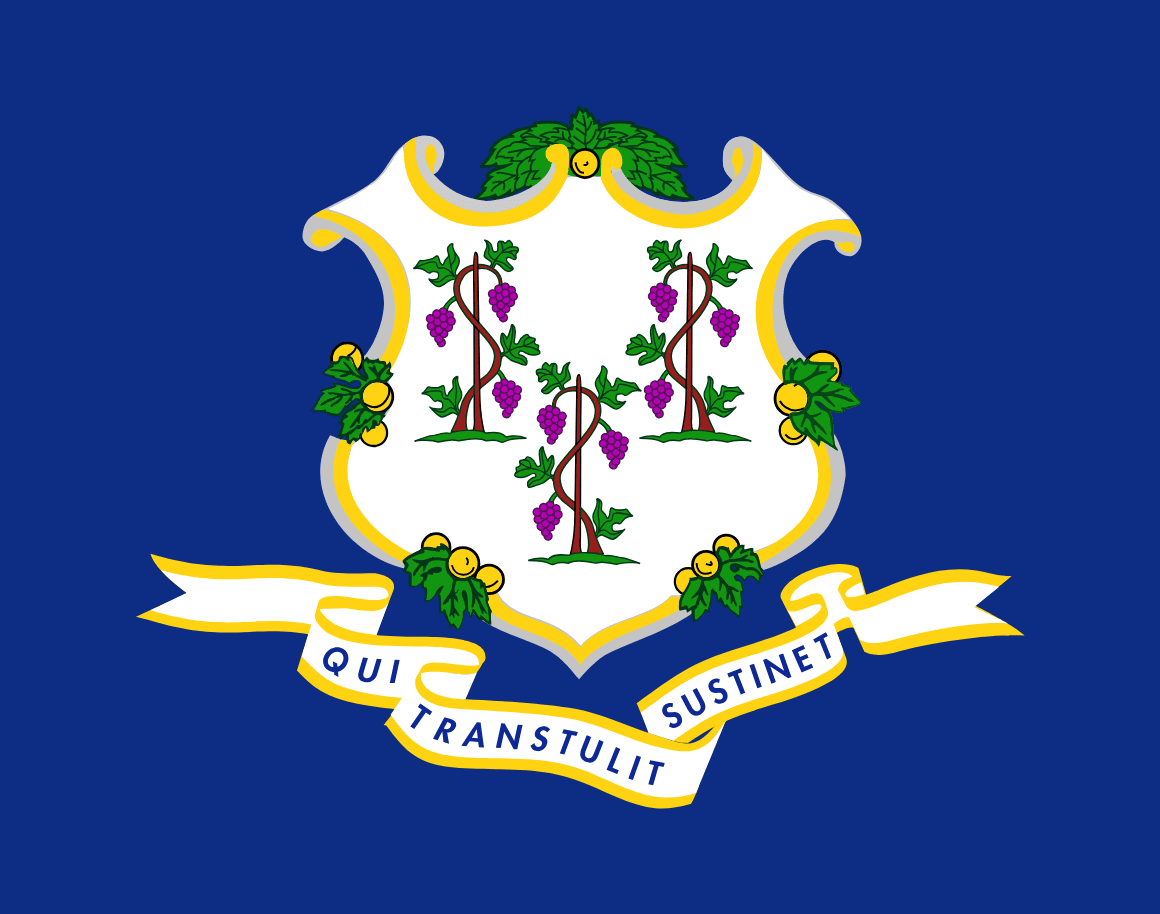An Overview of Funeral Home Negligence in Connecticut
Losing a loved one is one of the most challenging experiences a family can face. During such a difficult time, families rely on funeral homes to handle their loved one’s remains with respect, dignity, and professionalism. Unfortunately, not all funeral homes meet these expectations, often due to instances of funeral home negligence.
In Connecticut, funeral home negligence can manifest in various forms, from improper handling of remains and failure to follow family instructions to fraudulent billing practices and poor facility maintenance. These actions violate ethical standards and cause additional emotional and financial distress to grieving families.
Our team of dedicated funeral home lawyers focuses on negligence cases, providing compassionate legal support to families affected by these unfortunate incidents. We understand the complexities of these cases and are committed to holding negligent funeral homes accountable for their actions. Whether mishandling remains, overcharging, or showing a lack of empathy and respect, our goal is to advocate for justice for your loved one and your family.
This guide will explore the common types of funeral home cases and the steps you can take if you suspect negligence. We will also provide information on identifying warning signs of funeral home malpractice and filing a complaint against a funeral home in Connecticut.
If you believe your family has been a victim of funeral home negligence, contact us for a free consultation. Our experienced lawyers are here to help you navigate this difficult time and seek the justice you deserve.
Common Types of Funeral Home Negligence
Funeral home negligence in Connecticut can take many forms, including:
- Losing The Body or Ashes of the Decedent: Misplacing or losing the remains or ashes, causing emotional distress to the family.
- Mishandling the Body of the Decedent: Improperly storing, transporting, or preparing the body, resulting in damage or disrespect.
- Burying or Cremating the Wrong Body: Mistakenly burying or cremating a different body than the one intended by the family.
- Sexual Abuse of A Decedent: Engaging in any form of sexual misconduct or abuse towards a deceased person’s body.
- Selling Parts or Organs of the Decedent’s Body: Illegally harvesting and selling body parts or organs without the family’s consent.
- Cremating or Burying Without Consent: Proceeding with cremation or burial without the explicit permission of the decedent’s family.
- Using the Wrong Gravesite or Plot: Burying the decedent in an incorrect gravesite or plot leading to complications and distress for the family.
- Providing the Wrong Body at the Service: Presenting the wrong body during a funeral causing confusion and emotional harm.
- Unlicensed Funeral Home Staff: Employing unlicensed or unqualified staff to handle funeral services, resulting in substandard care and potential violations of regulations.
- Moving a Buried Decedent’s Remains: Relocating a decedent’s remains without proper authorization causing significant distress and legal complications for the family.
These actions can cause significant emotional and financial harm to families.
Legal Rights of Families in Connecticut
Legal rights of families In Connecticut Funeral home negligence laws aim to protect grieving families from negligent acts that cause emotional distress, financial loss, or other damages. Connecticut families may have grounds to file a claim against a funeral home for negligence involving mishandling remains, failing to follow final wishes, overcharging, losing personal effects, or other misconduct. Potential remedies can include compensation for emotional trauma, reimbursement of expenses, and punitive damages in egregious cases. However, the specific legal standards, the statute of limitations, and available damages can vary, so consulting a funeral negligence attorney is advisable to fully understand your family’s rights and options for seeking justice. An attorney can explain your rights, help you navigate complex legal issues, and build the strongest case for your family.
Laws Governing Funeral Homes in Connecticut
In Connecticut, funeral homes are regulated by specific statutes and regulations designed to ensure that they operate with integrity and professionalism. These laws cover various aspects of funeral home operations, including the handling of remains, licensing requirements, and consumer protections. Funeral homes must adhere to these regulations to maintain their licenses and avoid legal penalties. For detailed information on the specific statutes governing funeral homes in Connecticut, refer to Connecticut General Statutes Title 20 Chapter 385. These statutes provide comprehensive guidelines to protect the rights and dignity of the deceased and their families.
How to Identify Funeral Home Negligence in Connecticut
Recognizing funeral home negligence can be difficult. Here are some warning signs to look for:
- Discrepancies in Billing: If you notice charges for services not rendered or unexpected fees, this could indicate fraudulent billing practices.
- Poor Communication: Lack of clear, timely, and respectful communication from funeral home staff can indicate underlying issues.
- Mishandling of the Deceased: Signs of improper handling include visible damage to the body, unauthorized embalming, or presenting the wrong body to the family.
- Unsanitary Conditions: Unclean or unsafe facilities reflect neglect and can pose health risks to visitors.
- Unfulfilled Requests: Ignoring the family’s specific wishes regarding the funeral arrangements or failing to provide agreed-upon services.
- Missing Personal Items: If personal items such as jewelry or clothing are missing or damaged, it might indicate theft or careless handling.
- Emotional Insensitivity: Disrespectful or insensitive behavior towards grieving families can exacerbate emotional distress.
- Failure to Provide Paperwork: Delays or inconsistencies in funeral-related paperwork such as death certificates or cremation authorizations.
If you notice any of these signs, immediately document everything, gather evidence, and contact a lawyer with experience in funeral home negligence.
Steps to Take if You Suspect Funeral Home Negligence in Connecticut
If you suspect funeral home negligence, taking the right steps can significantly impact the outcome of your case. Here are the actions you should take:
- Document Everything: Keep detailed records of all interactions with the funeral home, including emails, phone calls, and in-person conversations. Note the dates, times, and names of the individuals you spoke with.
- Gather Evidence: Collect any physical evidence that supports your claim, such as photographs of the deceased’s condition, billing statements, contracts, and any written communications from the funeral home.
- Preserve Physical Evidence: If you believe there has been improper handling or embalming, do not allow alteration or cremation of the body until conducting a thorough investigation. Consult with your lawyer to ensure all necessary steps are taken to preserve critical evidence.
- Seek Medical or Professional Opinions: If you suspect improper embalming or handling, obtain an independent evaluation from a medical professional or another funeral service provider to support your claim.
- File a Complaint: Contact the state funeral board to file an official complaint. Provide all the documentation and evidence you have gathered to support your case. Visit our funeral home complaint guide for detailed instructions and contact information.
- Consult with a Lawyer: Reach out to a lawyer focusing on funeral home negligence to discuss your case. An experienced attorney can provide personalized legal advice, help you understand your rights, and guide you through the legal process.
Taking these steps ensures that your case is thoroughly investigated, and you have the best chance of achieving a favorable outcome.
In the wake of losing a loved one, many emotions and decisions can be overwhelming. Our comprehensive ‘Family Guide’ has been meticulously crafted to be your anchor during these turbulent times. Delve into its pages to gain a deeper understanding of funeral home negligence, from specific examples like mishandling remains or unlicensed staff involvement to the rights that protect you and your family. Discover how our seasoned attorneys can be your advocates, from initial consultations to court representation. We recognize the sanctity of your loved one’s memory and the trust you place in funeral homes. When there is a breach of trust, know that we stand ready to champion your rights. Whether you’re seeking answers to pressing questions or need legal representation, our dedicated team at Traction Law Group is just a call away, ensuring you’re supported every step of the way.Download Our Family Guide

Filing a Complaint Against a Funeral Home in Connecticut
The Connecticut Department of Public Health/Board of Examiners of Embalmers and Funeral Directors oversees the regulation of funeral homes in Connecticut. Complaints against funeral homes may be filed with the board for malpractice, deceptive trade practices, or other issues. You may contact the funeral board at:
Connecticut Department of Public Health/Board of Examiners of Embalmers and Funeral Directors
(860) 509-7552
Visit our funeral home complaint guide for detailed instructions and contact information.
Information to Prepare When Filing a Complaint with the Connecticut Department of Public Health/Board of Examiners of Embalmers and Funeral Directors
When you’re ready to file a complaint, prepare detailed information for the funeral board. Remember to include the following details:
Who
- The victim’s name and address.
- The names of the funeral home, crematory, or cemetery and those in charge of the victim’s care.
- The name of the person you suspect of committing the abuse, neglect, or exploitation.
What
- Describe the type and severity of harm, including any physical evidence of abuse or neglect.
- Note any past incidents that might be related.
- Provide a detailed account of what you observed. Include photographs of any visible injuries or conditions that support your claim.
Where & When
- Specify where and when the incident occurred to give a clear context for the investigation.
This information will help authorities to understand and promptly investigate your complaint thoroughly.
Proving Funeral Home Negligence in Connecticut
If your loved one suffered neglect, negligence, abuse, or exploitation by a funeral home, and you wish to hold them accountable, you need to understand how to establish their negligence. “Negligence” is the legal term for liability or responsibility in an accident. To prove liability, you generally need to meet the following criteria:
- Duty of Care: The funeral home owed you a duty of care. They were responsible for treating the deceased with honesty and respect.
- Breach of Duty: The funeral home failed to fulfill their legal obligation, thus breaching their duty of care.
- Causation: The breach directly caused harm. The funeral home’s actions or inactions led to the abuse or mishap, making them legally responsible.
- Damages: Losses suffered as a result of the conduct. The funeral home’s actions resulted in physical harm to the deceased and emotional or financial harm to you and your family.
Types of Damages in Funeral Home Cases
When a funeral home fails to meet the required standards, families may seek various types of damages:
- Actual Damages: This includes reimbursement for all expenses incurred. If you purchased a casket, urn, flowers, services, or any other items from the funeral home and received substandard or incorrect products, you can claim the costs of these items and any replacements you had to buy due to their negligence.
- Lost Wages: If you had to miss work to address issues caused by the funeral home’s negligence, you can claim compensation for your lost wages.
- Emotional Distress: Dealing with the loss of a loved one is already a difficult time. If the funeral home’s actions caused additional emotional distress, such as depression, anxiety, or PTSD, you can seek compensation. Medical records and expert opinions must support emotional distress claims.
- Medical Bills: If you suffered medical issues due to the funeral home’s negligence, you may recover damages for related expenses. Bills may include costs for psychological counseling, prescription medications, and treatment for physical ailments like heart attacks or high blood pressure.
- Punitive Damages: Punitive damages are intended to punish the funeral home for gross negligence. Examples include cremating the wrong body, allowing a body to decompose, or any other actions that a reasonable person would find egregious or shocking.
Who Can Sue for Funeral Home Malpractice In Connecticut?
In most states, the following individuals have the legal standing to bring a malpractice lawsuit against a funeral home:
- Surviving spouses
- Surviving children
- Surviving parents
- In some cases, individuals designated in the deceased’s will as beneficiaries of the estate.
The Role of Attorneys in Funeral Home Lawsuits
Attorneys specializing in funeral home negligence cases play an essential role in helping families achieve legal redress:
- Legal Experience: These attorneys possess extensive knowledge of funeral home regulations, industry practices, and relevant state laws. They can evaluate the situation, advise on legal options, and develop a robust case.
- Thorough Investigation: They conduct detailed investigations, gathering key evidence such as contracts, invoices, communication records, and expert opinions to support the claim.
- Negotiation Skills: Experienced attorneys negotiate with funeral homes and insurers to obtain fair settlements for families, often avoiding protracted legal battles.
- Litigation: When settlements are not feasible, these attorneys represent families in court, presenting a strong case and advocating for their rights.
- Emotional Support: Understanding the emotional strain on families, these attorneys provide compassionate support throughout the legal process.
- Access to Resources: They have connections with expert witnesses and forensic specialists who can provide critical testimony to strengthen the case.
Contact Our Funeral Home Lawyers for a Free Consultation
At Traction Law Group, our team of skilled lawyers reviews cases nationwide and is dedicated to helping families affected by funeral home negligence. We offer compassionate legal support and fight tirelessly for the justice you deserve. Our experienced attorneys understand the emotional and financial toll that negligence can cause, and we are committed to holding responsible parties accountable.
We have recovered millions against bad actor funeral homes for families like yours.
Trust Traction Law Group to provide dedicated and compassionate legal assistance – start your free consultation now!
Frequently Asked Questions (FAQ)
- What is funeral home negligence? Funeral home negligence is a broad term for when deathcare services like a funeral home fall below the standard of care, causing harm or distress to the family.
- How do I know if I have a case? If you suspect that a funeral home has mishandled your loved one’s remains or engaged in fraudulent practices, you may have a case. Contact us for a detailed evaluation.
- What is my funeral home negligence case worth? Potential compensation varies based on the specifics of your case, including emotional distress, financial losses, and punitive damages.
- How much does it cost to hire a lawyer? We work on a contingency fee basis, meaning you pay nothing unless we win your case.








